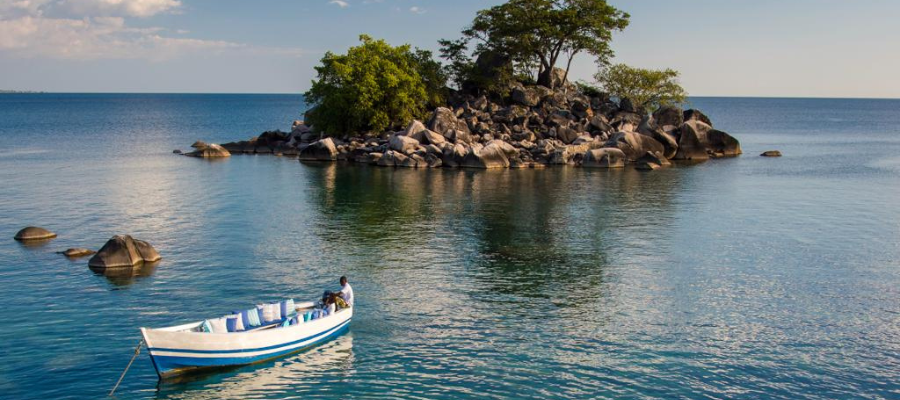By Hafsa Gaher, Founding Partner and Director at Archer & Gaher Adventures
Travel has always been about discovery. From the out-of-the-box package holiday to the seasoned backpacker, there is always an element of creating new memories in new places. But the reasons to pack those bags and head to new destinations are changing.

That drive to experience the world has a different focus, and tourism is undergoing a profound transformation. Society’s evolving demands, shaped by an ever-changing world of information and opinion, are challenging travel’s stable foundations. But while global events, the rise in technologies and emerging destinations have their part to play in this shift, a leading cause for this seismic change has been people – consumers and travel professionals alike – who are pushing the envelope as to what is possible. With global tourism spending set to hit US$2 trillion this year according to Euromonitor, here we will take a look at some of the industry’s latest trends as we ask what we can do to position ourselves at the forefront of this change and ride its wave into the future.
Discover more at Arabian Travel Market Dubai
The market leading travel and tourism event brings the whole world together in Dubai, UAE.
Join us from 28 Apr – 1st May at Dubai World Trade Centre.
The Influence of the Individual
One of the most striking trends since the pandemic has been the rise of the Digital Nomad. While travelling for work has always been a part of tourism, these modern wanderers, once shackled to desks in offices, were decanted during lockdown to work from home and have now been liberated. Their mindset is simple: if I can do my job from home, why not from Buenos Aires or Dubai? They therefore spread their wings and their influence into the world, contributing to the local economy and embarking on an immersive experience, while the online nature of their work contributes to their role as nomadic ambassadors and influencers who are ideally placed to shape the travel narrative.
There has been an emergence of businesspeople like us, combining a little downtime as part of a business trip, and so the portmanteau of “Bleisure” was born. This blended travel experience is expected to reach USD 300 billion in 2024 as the world craves a work/life balance. We in the travel industry have become avid practitioners of this artful fusion. We crisscross the globe attending conferences, networking, and engaging in industry events, while finding ways to weave leisure into business trips. Destinations are wise to facilitate this fusion, encouraging engagement through international events by combining functionality and the authenticity that we, seasoned travellers, crave.
Don’t miss out on our world-leading events
We bring travel and tourism professionals together, from around the world at our events. Discover the closest one to you and join the WTM community.
Strength in Numbers
In this dynamic landscape, there is an interesting shift towards unique and conscious travel. Through this, experiential travel introduces a paradox: finding something unique and immediately sharing with others so that the precious moment is immortalised. As we saturate social media with moments, one way to continue to grow is through meaningful engagement with different cultures. Travellers, irrespective of age, are increasingly seeking more than just the amenities and instead crave immersive experiences, creating a mutual and lasting impact with the destination and its people. This can be through intimate homestays or community-driven initiatives, fostering direct connections with artisans and culture. This trend is not merely about ticking off landmarks but about creating personal connections and leaving with a deeper understanding of the world.
Herein lies a second paradox: those who are time-poor attempt to balance experiencing an authentic version of the world but on their own terms, with limitlessly customisable itineraries and fluid arrangements. Destination specialists, such as ourselves at Archer & Gaher Adventures, are constantly tested in putting together personalised itineraries where no two holidays are the same, as our clients look for ways to push the boundaries of their experience. It is a game of constant learning and training to ensure up-to-date information is on hand to adapt to any situation.
This is particularly true given the growth of niche travel trends, from culinary travel through to medical tourism, where clients maintain multiple priorities when it comes to their travels. The area that has most interested us has been the growth of Halal Tourism, which is forecasted to be worth up to US$300 billion by 2030. The more interesting statistic is that 70% of Muslims worldwide are under the age of 40, which means there is a growing number of people looking to travel and with disposable income, and our partners are excited to get in on the ground floor. We are in constant dialogue with destinations, providing training and consultation to facilitate the welcoming of Muslim tourists to areas that are not necessarily seen as traditional Muslim holiday spots. A success story has been the impact felt by Cape Town following the considerable efforts put into marketing their Muslim heritage, which makes up 25% of their population. It is a continuing process, but tourism has already felt the bump of the fastest growing trend in the industry as private businesses engage with governmental initiatives to facilitate change.

Travellers vote with their feet, and while it is true that some prioritise familiarity, growing numbers are adapting to visit destinations for the first time where they can identify shared values. This is true of niche travel trends as it is with destinations who commit to green initiatives. Destinations are quick to adapt to this, although not all are fully cognisant of the power they possess. The tiny island of Likoma is a jewel in Lake Malawi; entirely run from solar power, but it took three days and an in-depth conversation with a member of the tourism board for us to find this out. Other destinations are just as quick to adopt green initiatives but much quicker to shout about them, and these are the places that will get the credit and the associated tourist dollars from clients searching for these emerging destinations. From traditional trailblazers such as Costa Rica, still leading the way in green initiatives, to cultural gems such as Rwanda and Georgia, eco-tourism is set to grow by 14.8% during the coming year as travellers are eager to get their teeth into a new destination, especially if it aligns with their personal ideology.

Charting the Future
The future of travel is intricately tied to our ability to adapt, embrace sustainability, and understand the evolving preferences of travellers. The influence of individuals, be it Digital Nomads shaping the narrative or travellers advocating for values-driven experiences, underscores the need for the industry to be agile, responsive, and aligned with the collective dreams of those who find joy in exploration. As we navigate this ever-evolving landscape, let us continue to explore, adapt, and shape an industry that mirrors the evolving aspirations of the global community.

